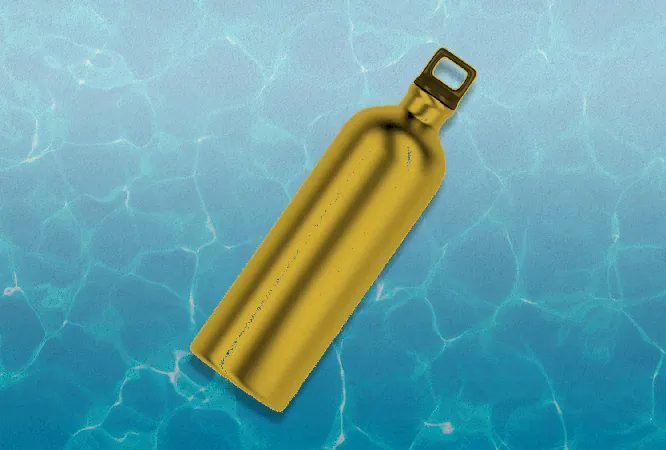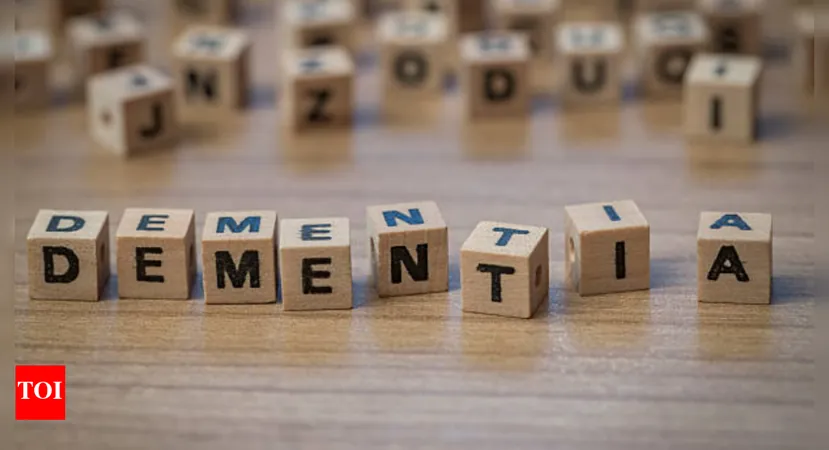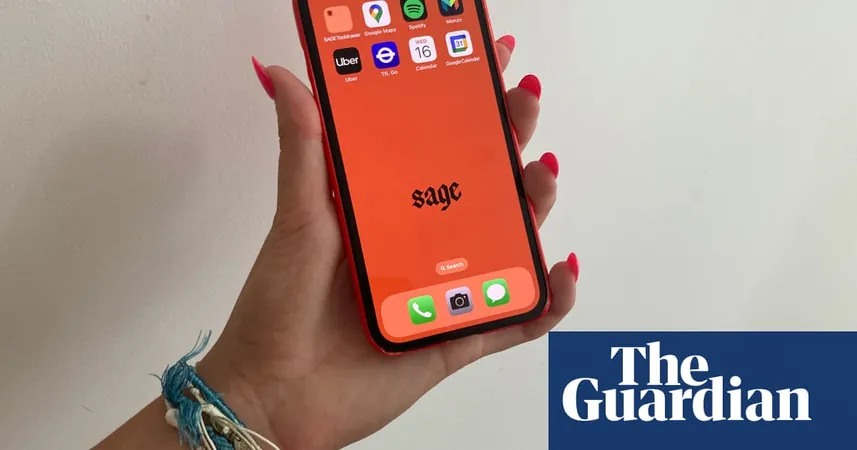
Why Hydration Has Become the Hottest Trend of the Year
2025-06-23
Author: Li
The Rise of the Hydration Craze
Move over designer bags—water bottles have taken center stage as the ultimate accessory! Thanks to viral sensations like ‘Watertok’ and the influence of wellness gurus, the Stanley Cup has transformed from a simple hydration tool into a full-blown status symbol. In just four years, sales skyrocketed from $70 million to an astonishing $750 million! Now, it’s almost impossible to stroll through a park or campus without spotting Gen Z-ers parading their ‘emotional support’ water bottles adorned with cheeky stickers like ‘hydrate or die-drate’. Let’s face it: hydrating has never looked so cool.
What Sparked This Hydration Obsession?
So, why the sudden obsession with hydration? With our fast-paced lives, many of us forget to drink enough water while juggling work emails and kids' activities. But is this hydration hype justified? And how much water is too much? We turned to health experts to get the scoop.
From Old-School to Trendsetter: The History of Hydration
Long before bottled water became a staple, people relied on nature, drinking rainwater or from springs. Bottled water made its debut in the 1700s when mineral springs began marketing their water as a health elixir. Although it waned with the introduction of chlorinated municipal water in the early 20th century, it saw a resurgence in popularity in the late 1900s, thanks to brands like Perrier and Fiji, which added a touch of glamour.
Fast forward to the 1900s—this is when the eight glasses a day rule was born, stemming from a 1945 U.S. guideline suggesting that adults need around 2.5 liters of water daily. What most people overlook is that a good chunk of this comes from food!" says Dr. Steven Goldberg.
With wellness culture booming, especially since the 1990s, bottled water has become the go-to alternative to sugary sodas and alcohol. In 2022, sales hit record heights, with bottled water outselling sodas for the seventh consecutive year!
The Bottled Water Boom: More Marketing Than Health?
While the bottled water fixation might seem like a healthy trend, it's worth noting that it is largely a result of savvy marketing rather than pure public health. A 2008 study found multiple pollutants in various bottled water brands, revealing that in some cases, bottled water was chemically identical to tap water—surprising, right?
Benefits and Myths About Hydration
Water is crucial for nearly every bodily function, including temperature regulation, joint lubrication, digestion, and waste elimination. The hypothalamus plays a pivotal role in signaling thirst, ensuring we maintain adequate hydration.
But not everyone senses thirst effectively! This is especially true for older adults, who may be more susceptible to dehydration, and those under specific medical treatments. Be alert for early signs like fatigue, dry mouth, or headaches. But don’t forget: dehydration can escalate to serious health concerns.
However, let’s bust some hydration myths! You don’t need to stick to water; unsweetened teas, sparkling water, and certain juices can keep you hydrated. And while caffeine is often thought to dehydrate, moderate consumption of coffee can actually contribute positively to your hydration.
The Risks of Overhydration
Surprisingly, you can also drink too much water, leading to a dangerous condition known as overhydration—illustrated by the recent case of a TikTok fitness participant who ended up in the hospital after consuming four liters daily for 12 days!
This condition occurs when excess water dilutes sodium levels in the blood, resulting in possible brain swelling, nausea, seizures, and in severe cases, death. While rare, overhydration is a genuine risk, particularly among endurance athletes or those with certain health conditions.
Finding Your Perfect Hydration Level
So, how much water should you actually consume? Factors like age, gender, weight, medical history, and climate all play a role. The common guideline of 64 ounces might not suit everyone. Experts suggest that men may need around 15.5 cups and women about 11.5 cups per day, including the fluids from food.
In hot climates, during intense workouts, or high-sodium diets, your hydration needs can increase. A handy tip? Check your urine color—pale yellow indicates good hydration, while dark yellow suggests dehydration. If you have any doubts, consult your healthcare provider for personalized advice.




 Brasil (PT)
Brasil (PT)
 Canada (EN)
Canada (EN)
 Chile (ES)
Chile (ES)
 Česko (CS)
Česko (CS)
 대한민국 (KO)
대한민국 (KO)
 España (ES)
España (ES)
 France (FR)
France (FR)
 Hong Kong (EN)
Hong Kong (EN)
 Italia (IT)
Italia (IT)
 日本 (JA)
日本 (JA)
 Magyarország (HU)
Magyarország (HU)
 Norge (NO)
Norge (NO)
 Polska (PL)
Polska (PL)
 Schweiz (DE)
Schweiz (DE)
 Singapore (EN)
Singapore (EN)
 Sverige (SV)
Sverige (SV)
 Suomi (FI)
Suomi (FI)
 Türkiye (TR)
Türkiye (TR)
 الإمارات العربية المتحدة (AR)
الإمارات العربية المتحدة (AR)